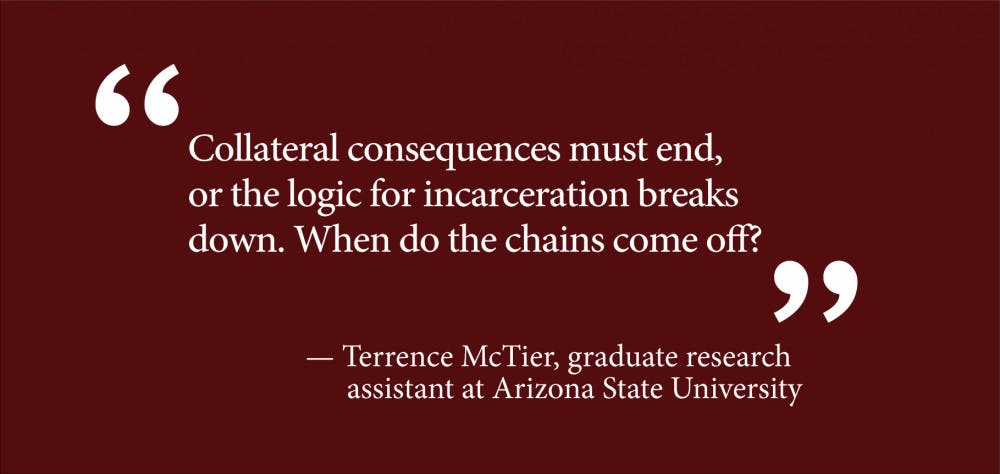A roar of applause erupted in Kassar Auditorium in response to panelist Andres Idarraga’s ’08 comment that Brown must “get its act together” in providing education to Rhode Island prisoners. Idarraga helped lead a discussion on prison reform during an event curated by the Petey Greene Program Monday night.
Idarraga and two of the other panelists at the event — Cherie Cruz GS and James Monteiro — work with the nonprofit Transcending Through Education Foundation, which provides scholarships and mentorship to prisoners obtaining college degrees. The group spoke about the power of education in transforming lives.
Michelle Jones, another panelist, serves as the chairwoman of Constructing our Future, an organization dedicated to securing economic stability for female prisoners in Indiana by giving them opportunities to work in construction. Jones discussed the importance of shelter for released female prisoners.
The panel also touched on the ways that allies can work with prison reform. Jones explained how stigmatized language can affect a person who has been incarcerated.
Terrence McTier, a graduate research assistant at Arizona State University, discussed his upcoming workshops, which center around language and are geared toward universities focused on allyship in prison reform. “Check your stigma, check your discrimination,” McTier said, echoing the need to erase the stigma ex-prisoners face daily.
Spurred by Montiero’s acknowledgement of Brown faculty’s work with Adult Correctional Institutions, Professor of History Sarah Remensnyder talked about how Brown’s prison education committee has worked to offer institutionalized education at ACI.
Various panelists discussed their educational journeys during and after imprisonment. Cruz spoke about her connection to Brown, where her father worked as a janitor for 10 years until he was fired for his jail record, as well as her and her brother’s past employment at the Sharpe Refectory and Verney-Woolley Dining Hall. Cruz said attending Brown allowed her to work on prison reform “from the inside.” Monteiro, founder of the ReEntry Campus Program, discussed the school-to-prison pipeline that played out in his life, as he grew up on Hope Street without parental figures nearby during the height of the crack epidemic. He dropped out of school not because it was academically challenging for him, but because he “did not see what school could do for him” until his imprisonment, he said. “All you do in prison is read,” Monteiro said.
McTier talked about his experience working as a correction officer in a juvenile detention center, wherein the deterioration of young boys of color resonated with him. He talked about the complex dynamics of relating to the prisoners knowing “what it was like to be in chains, what it was like to be strip searched” while being viewed as a uniformed authority who handcuffed them. McTier went on to describe the stories of boys of color isolated in segregated units as well as the connections to students of color that he forged.
These stories of the panelists’ encounters with education sparked a shared idea that curriculum in schools that primarily serve students of color should represent their students.
The panelists also focused on the barriers prisoners face with respect to access to higher education — including a lack of funding for educational programs, high expense of classes, censorship of educational materials, background checks and the “box” on an application that confirms if one was convicted of a crime. “Collateral consequences must end, or the logic for incarceration breaks down,” McTier said.“When do the chains come off?”
After the event, Gabriela Castillo ’18 reflected on these discriminatory actions, highlighting her realization of the harsh reality of the prison system and all of the barriers she had been unaware of. “The fact that (Petey Greene) wanted (the panel) there was powerful,” Castillo said.





